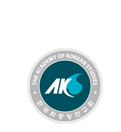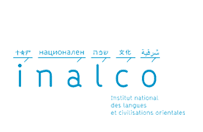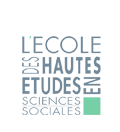Le Centre de recherches sur la Corée (UMR CCJ, EHESS-CNRS) et la section d’études coréennes de l’UFR LCAO de l’Université Paris Diderot sont heureux de vous informer de la venue du Professeur KIM Gwi-Ok, sociologue de Hansung University de Séoul, sur invitation de l’EHESS. Elle donnera quatre conférences en anglais : le mercredi 8 juin et les vendredi 10 et 17 juin à 14h et le mercredi 15 juin à 11h dans la salle des Conseils (481C) de l’UFR LCAO, Bâtiment des Grands Moulins, Hall C, 4ème étage, 5 rue Thomas Mann, 75013.
Merci de bien vouloir vous munir d’une photocopie de cette annonce pour pouvoir accéder aux locaux.
(Full-Professor of the Dept. of Liberal Arts and Science in Hansung University, KIM Gwi-Ok got her Ph. D in 1999 in the Dept. of Sociology in Seoul National University in Korea. She is a member of board of directors of the Korean Sociological Association, and deputy president of the Korean Oral History Association. Main publications in Korean : Oral History: Methodology and Practice (Seoul: Hanul, 2014), Military and Sexual Violence in Korea (co-authors) (Seoul: Sunin Press, 2012), War and Society in East-Asia (ed. Seoul: Hanwul Press, 2009), The Division and Separated Families in the Korean Peninsula (Tokyo: Akashi Press, 2008), etc.)
Programme des conférences :
1- Impact of the Division on the South Korean Society / 8 Juin 2016, 14h-16h
What does the Korean Division mean to South Koreans? The goal of the lecture is to give an up to date understanding of the issues of the division in the Korean Peninsula, and to deal with the social consequences of this division. Topics such as the anti-communist society, the military society, the patriarchal sexual culture, the changes in geographical social situation and the changes in family relationship, will be mobilized in order to give an answer to the question.
2- Korean Separated Families: since the 1945~1953 Korean Division:‘Wollamins’/ 10 Juin 2016, 14h-16h
The lecture will deal with the issue of separated families by raising two main questions concerning on the one hand, the typology of the separated families, and on the other hand, the periodic characteristics of Wollamin population and its migration motives. These considerations will allow us to draw a picture of the roles and meaning of Wollamin in South Korea.
3- The Korean War and the Korean Military Comfort Women Station System (KCWS) / 15 Juin 2016, 11h-13h
As some specialists may well know, the South Korean Army (ROKA) has organized and managed a Military Comfort Women Station System (KCWS) during the Korean War (1951~1954). The lecture intends to answer to three mains questions about this issue: What were the details of KCWS? ; Why, by who, and how this KCWS has been operated? ; Was this related to Japanese Military Comfort Women Station System during the Japanese War?
4- DMZ and Regions in South Korea : the case of Cheorwon / 17 Juin 2016, 14h-16h
The lecture will focus on the subject of the DMZ and the nearest regions. After explaining what is the DMZ (Demilitarized zone) in terms of a military demarcation line structure, fourmisunderstandings surrounding the demilitarized zone will be cleared. As an example of the DMZ – Regions relation, the lecture will focus on the case of Cheorwon by dealing with its history, the building of the military villages in the area, the small changes in the villages after 2000, and finally the great Vision of Cheorwon.






